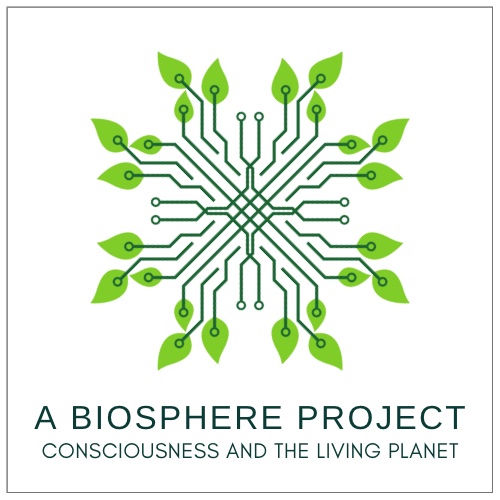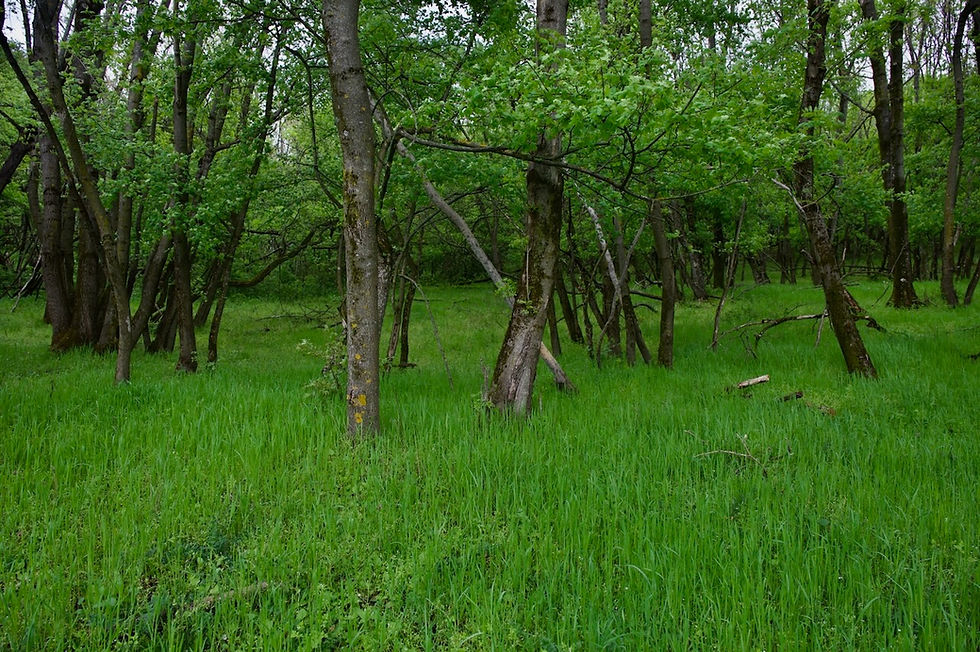Whales, the Climate, and the Living Planet - Musings and Meditations
- filipvk
- Jan 27, 2024
- 4 min read
Updated: May 29, 2025
Dear friends,
in last week's post I talked about whales, and how they often create wondrous and perfect spirals in the deep water during the process of "bubble-feeding," an expression of the mysterious splendor of the Universe.
But whales do more than create beautiful spirals. Much more.
Whales are a ‘keystone species’, a species that plays an essential role in sustaining an entire ecosystem. And through a process called ‘trophic cascades’, they have a very far-reaching influence on all life in our oceans.
'Trophic cascades' are a process that goes from the top of the food chain down to the base of the food chain and back again, influencing each and every aspect of the ecosystem involved.
In this post's four-minute video, journalist, activist and climate thinker George Monbiot explains how whales have a very significant impact on climate even through these ‘trophic cascades’. It's an incredibly fascinating story, and yet another confirmation of the wonderful way everything in our biosphere is connected to everything else, and also how literally everything alive has an impact on climate.
Another mindblowing fact about whales: even now that whale populations are only a fraction of what they once were (it is estimated that some three million whales have been slaughtered since 1900), the influence of whales on the ‘mixing’ or ‘stirring’ of the water layers in the oceans is as great as the influence of all the winds, waves AND tides combined.
So we can say that before industrial whaling, whales were most likely the single biggest factor in the up-and-down movement of water in all oceans, which is one of the decisive factors for the growth and flourishing of numerous organisms, including algae and plankton and microorganisms, all of which have a decisive influence on climate.
This is just one of many examples of ‘trophic cascades’, and also on land there are many examples of ‘keystone species’, often animals at the top of the food chain, that have a determining influence on the health of the entire ecosystem, including even the course of rivers or, indeed, the climate. I will come back to that more than once in the blog in the future.
We must begin to see our biosphere as an integral and indivisible living organism, in which everything and everyone plays a role in the wonderful balance and dance of opposites. And giving global whale populations a chance to truly recover may well have a greater impact on climate than our dreamed-of ‘techno-fixes’, our attempts to solve all the imbalances we have created with more machinery, more energy consumption, more mining of minerals and ores, more industry and technology.
This video was shared on the YouTube channel from Sustainable Human,
a site that explores possible new narratives to confront the convergence of ecological and other crises. In their words:
"We believe there is a common root to the major problems that afflict society. Climate change, inequality, addiction, racism, extinction - all of these issues stem from the same root source - a faulty story about ourselves and the world."
And a statement from the intro on their YouTube channel:
“Changing the way we think is the most difficult and necessary challenge for our species right now. It's like the old adage that says that "fish don't know they're in water." They're so surrounded by it that it's impossible for them to see. The water is like our ways of thinking. The assumptions we make about life have been so reinforced throughout our lives that we have difficulty seeing them. Yet our survival as a species depends us making the choice to understand, develop, and live from a new manner of thinking.
This channel is dedicated to exploring and sharing these new ways of thinking.”
Both the site and the YouTube channel feature many fascinating and informative short films about the wonderful world we live in.
George Monbiot is an author, journalist, activist and climate thinker. He writes for the English newspaper The Guardian, but you can find all his writing and articles on his website:
I don't always agree with Monbiot's views, and especially when it comes to agriculture or nuclear energy my ideas are very different from his, but he is nevertheless a tireless advocate of radical action on ecology, climate and all related crises in our society.
I have always had a soft spot for whales (see also my text 'To Feel or Not to Feel, That is the Question'), and when I found out a few years ago that whales also have such a great influence on the climate and the entire living tissue of our biosphere, my love for these 'gentle giants' only increased. Once I had the privilege of meeting a humpback whale up close (very close), but that musing is for next week.
Thanks for reading, until the next installment,
All the best,
Filip

Sleeping sperm whales in the Mediterranean Sea. Photo credit: Patric Dykstra
Whales sleep vertically, in groups of five or six, usually at a depth of about 15 meters. It wasn't until 2008 that it was discovered that whales sleep this way, and this image, taken in 2017, was one of the first photos of this extraordinary event.






